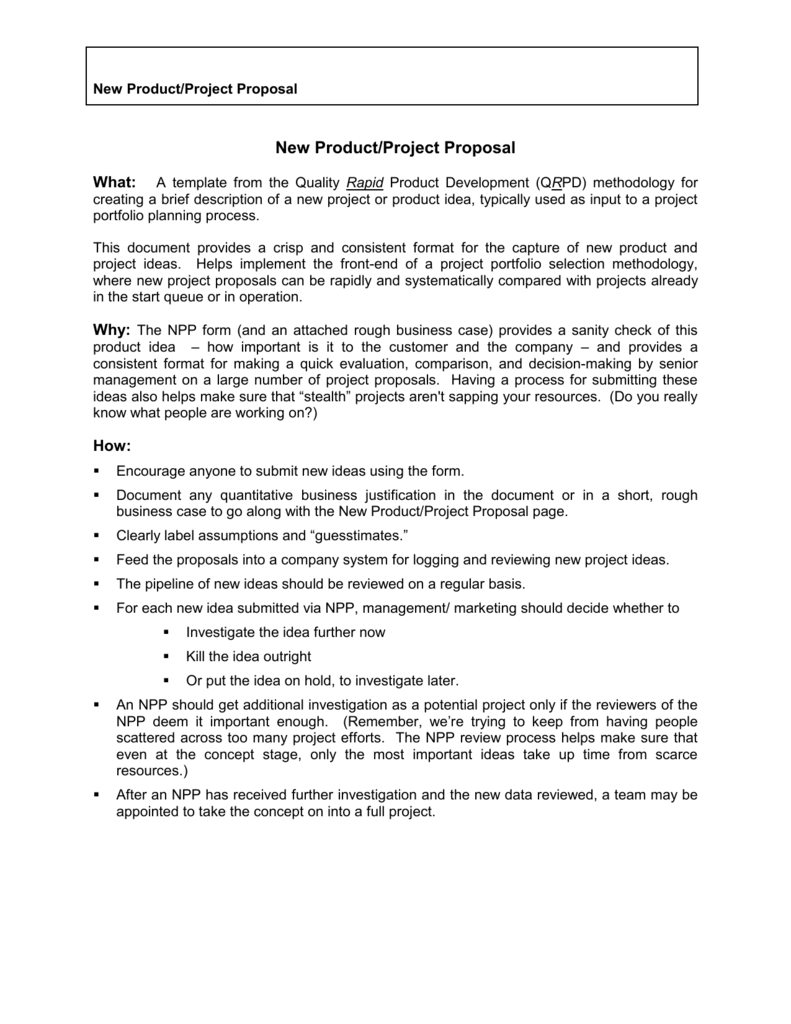A product development proposal establishes a relationship with a future business partner or a client regarding the launch of a product. For partners, you could introduce your product as a viable option for them to invest their resources or expertise to refine it further. For clients, it is a great way to explain the benefits of using the product over that which is offered by your competition.
At the crux of it, a product development proposal helps generate new business and gain traction for something that is new to the market. Thus, it is essential to write a well-thought-out product development proposal to create a much-required buzz around the product.

When executed correctly, a product development proposal could strengthen business or customer relationships and generate revenue.
Vital parts of a product development proposal
Typically, every product development proposal must contain the following key elements:
1. Background in the product development proposal template
The purpose of the product development proposal is to attract new clients or develop partnerships with other businesses. Thus, the chances are that they may not have even heard of you yet! So it is important to give them an overview of your company as your introduction. You could speak about your overall experience in the industry, the scope of work carried out by you in recent years or another project management contract template you landed before. This executive summary starts the product development proposal on a highly professional note, conveying that you mean business. Let's say you are a coder, you'll want to provide a nice summary of what you'll do to get the product live. This will help you land a freelance software development contract template.
2. Problem statement in the product development proposal sample
Next, when you introduce a product, it is important to talk about the need for the product. Start by listing out the challenges faced by the end-user, which gave birth to the product concept and triggered the company to start developing the product. It is always a good practice to include a snapshot of the research carried out by your R&D team. Include references to high-authority research and studies that laid the foundation for your work. In doing so, you not only build credibility but also make the product development proposal stand out.
In this section, you may also define your target clients and present your product as a solution to their woes. Thus, end-users or businesses can realize how the product will affect them and why they should purchase or contribute to it.

3. Product description in the product development proposal sample
The product description forms the life and blood of the product development proposal. Here, you talk about the features, characteristics, and specifications of your product at length. You may also divulge information regarding what stage of the development the product currently is in. The product development proposal could also talk about the current issues faced in the product development process, in case it seeks aid from other organizations.
4. Schedule and costs in your product development proposal example
If the product is currently in its nascent developmental stage, you can publish a timeline in your product development proposal to make the receiver understand the future roadmap. Talk about the current framework and how the company plans to overcome the challenges. Having a target product launch date can help create hype around the product.
Do remember to include the estimated cost per item so that clients know about the pricing.
5. Terms and conditions in your product development proposal
The terms and conditions of a product development proposal may stipulate how companies will work together to develop the product. From revenue-sharing models to co-branding, most of it is discussed in this section.
Bonsai offers several professionally-crafted product development proposals to wow your business partners and customers. So whether you are a researcher looking for expert inputs or a business looking to get started - Bonsai can help you get there!





